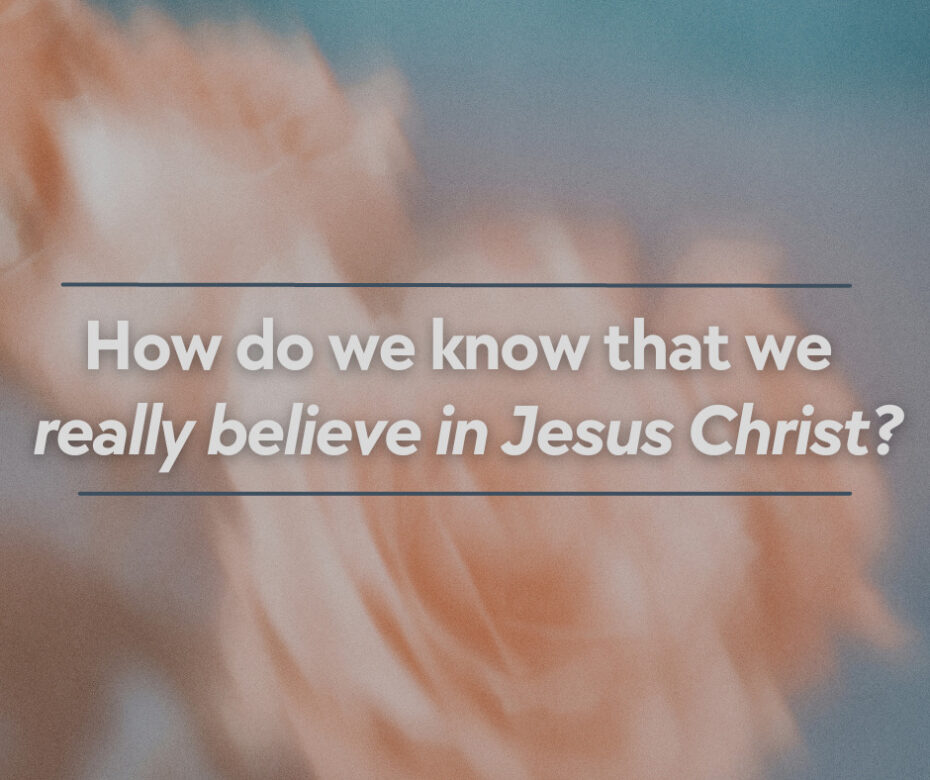Paul asks,
You say having assurance is the essence of saving faith. This leaves no room for doubt if it’s based on assurance. How do you know you’ve really believed? Assurance seems relative. It comes and goes like emotions. Experientially we all have doubt. If you tell me the essence of saving faith is to not think of a zebra, the first thing I will do is think of a zebra. If you tell me the essence of saving faith is assurance, the first thing I will do is doubt my assurance. The believer has an objective reason for assurance and should rest in that assurance, but to say it’s the essence of saving faith ironically plants doubt and anxiety. I really enjoy your podcasts I just struggle with this view of assurance.
Assurance is a synonym for belief. To believe that Jesus rose from the dead is to be assured that He did. All assurance is belief. Assurance of our salvation is believing that we are saved once and for all.
Assurance and doubt cannot coexist at the same time. But assurance can be followed by doubt.
We are not saying that a person with doubts has never been born again. What we are saying is that when someone doubts, he is not believing. However, if he has ever believed in Jesus for everlasting life, then he remains eternally secure. One is born again the moment he believes, not after a lifetime of belief. Belief may fail. But salvation cannot fail, because the Lord Jesus guarantees it.
What would it mean to really believe? Do you really believe that 2 + 2 = 4? Do you really believe that Joe Biden is President? Do you really believe that gravity exists? Nobody asks those questions. Nor does anyone ask if he really believes that Jesus was born in Bethlehem, that He grew up in Nazareth, that He died on the cross for our sins, that He rose from the dead, or that He is coming again.
Preachers have created doubts about salvation by coming up with two types of faith–genuine saving faith and non-genuine, non-saving faith. The Bible knows nothing of two types of faith. All faith is faith.
If I say that assurance that Jesus was born of a virgin is of the essence of faith in His virgin birth, no one will question that. Obviously, if I doubt that He was born of a virgin, then I do not believe in His virgin birth. I may have believed in the past. The same is true with assurance of anything. If I am no longer assured that something is true, I no longer believe it.
Finally, why would Paul or anyone else doubt their salvation when they hear us say that one must be assured that his eternal destiny is secure because of faith in Christ?
Paul’s reasoning seems to go like this:
Major premise: One must continue to believe in Jesus in order to retain everlasting life.
Minor premise: I often have doubts that Jesus has saved me once and for all, but doubts are not unbelief.
Conclusion: I am still saved even though I doubt I’m saved.
The conclusion makes no sense. If and when Paul doubts his salvation, he is not assured of his salvation.
All three points of his thinking are wrong. We do not need to continue to believe in Jesus in order to retain everlasting life. Once we believe, we are saved forever. It looks as if Paul has been confused by Lordship Salvation, which says that one must persevere in faith and good works in order to gain final salvation. That leads him to rationalize that doubt is not unbelief. That is important to him because he is convinced that one is not saved at a moment in time, but only after a lifetime of faith.
I urge Paul and all who have doubts to read the Gospel of John prayerfully. Is it really as simple as believing in Jesus for everlasting life that cannot be lost (John 3:16; 4:10-14)? If so, at the moment that I believe, I know I’m secure forever. I might later doubt that. But what would lead me to doubt God?
The best way to doubt your salvation is to listen to Lordship Salvation and works salvation preachers and teachers. They think that having doubts about your salvation is good. It keeps you motivated to serve so that you might gain final salvation someday.
Next month marks the fiftieth anniversary of my spiritual birth. I have never doubted my salvation in all that time. Why? Because my salvation rests on His faithfulness to His promise, not on my faithfulness to anything. He guarantees my salvation. In order to doubt that, I would need to doubt His trustworthiness. That makes no sense to me.
I realize we live a postmodern culture. Many young people have been duped into saying, “We don’t know anything for sure.” They will say that they aren’t sure that they exist, that the world exists, or that anything exists. That philosophy is morally and intellectually bankrupt. I think, therefore, I am. I know I exist because I have senses, and I can see God’s creation, which convinces me that He exists (Ps 19:1).
Pray. Seek the truth. God will convince you of the promise of everlasting life to the believer if you are open.


